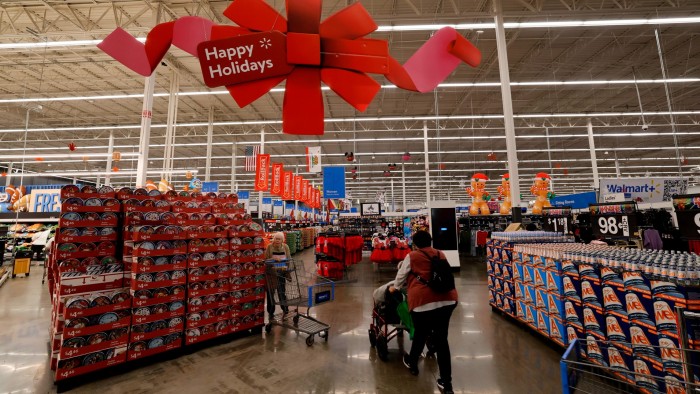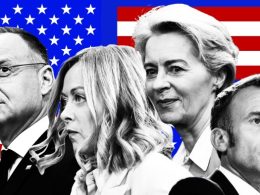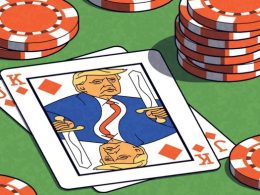Stay informed with free updates
Simply sign up to the US economy myFT Digest — delivered directly to your inbox.
US retailers are extending their one-day seasonal Black Friday discount offers into a sales event lasting weeks in a bid to tempt US consumers to keep spending, as data suggests that their spree which has driven economic growth is beginning to falter.
Walmart, Amazon, Target and Macy’s are among the US retailers already offering deep discounts under the banner of Black Friday, long before it actually arrives this week.
Despite this, general merchandise unit sales were down 3 per cent year-on-year in the week ending 16 November according to data from Circana, which compiles retail point-of-sale data.
The National Retail Federation forecasts that winter holiday sales will reach almost $1tn in the US in November and December, a record $902 a head. But the rate of spending growth is expected to be about 2.5-3.5 per cent, the slowest since 2018.
“We’re seeing this drag-out of incentives to try to widen the window within which [retailers] can draw more consumers,” said Gregory Daco, chief economist at adviser EY Parthenon. “The likely reality in this holiday season is that we see fairly subdued sales because volumes are growing, but at a moderate pace — and [retailers have] much less pricing power.”
Retailers were “incentivising via discounts and different forms of promotions” for those at the lower end of the income spectrum while also “trying to grab higher-income individuals to make purchases during this wider window”, he said.
Although headline inflation has ebbed from the historic highs of the past couple of years, consumers “remain extremely frustrated by the persistence of high prices”, the University of Michigan said this week in a monthly survey.
Consumer spending has been the main driver of America’s robust economic growth in recent months. But consumer confidence is still well below the long-run average, sentiment surveys show.
The prospect of a fresh round of tariffs under Donald Trump’s incoming presidency raises the risk that inflation could take off again, economists have warned — posing a fresh drag on sentiment.
“Donald Trump’s return to the White House with a Republican majority [probably leads] to higher inflation, slower GDP growth and increased budget deficits,” Roland Fumasi, food and agribusiness analyst at Rabobank, said in a note.
If Trump increases tariffs, that would “lead to a rebound in inflation and a slowdown in economic growth”, he said.
“The negative impact on growth could be mitigated by tax cuts and deregulation by a Republican Congress. However, this would increase the budget deficit and reinforce inflation, especially in combination with reduced immigration,” he added.
Black Friday is one of the busiest times of year for consumer goods stores, and the period between Thanksgiving and Cyber Monday — the Monday following the holiday, when electronics vendors discount goods — is critical to retailers’ annual revenue.
NRF chief economist Jack Kleinhenz said that households’ finances were in “good shape”, offering “an impetus for strong spending heading into the holiday season”, although “households will spend more cautiously”.
Brian Cornell, Target chief executive, told analysts this week that consumers were becoming “increasingly resourceful” in the way that they shopped, “focusing on deals and then stocking up when they find them”.
The store group, which disappointed Wall Street this week by forecasting flat sales in the fourth quarter, ran a three-day “Early Black Friday” promotion in early November. On Thursday it launched a promotion titled “Black Friday deals” which will last to the end of the month, including items such as half-price Christmas trees and headphones.
Walmart, the world’s largest retailer, launched the first of two week-long “Black Friday Deals” events on November 11. The second will begin on Monday, offering markdowns on televisions, iPhones, toys and jeans, among other items.
Amazon’s “Black Friday Week” began on Thursday. Home Depot’s “Black Friday Savings” offer lasts from November 7 to December 4.
Additional reporting by Will Schmitt in New York and Madeleine Speed in London
Source link









